
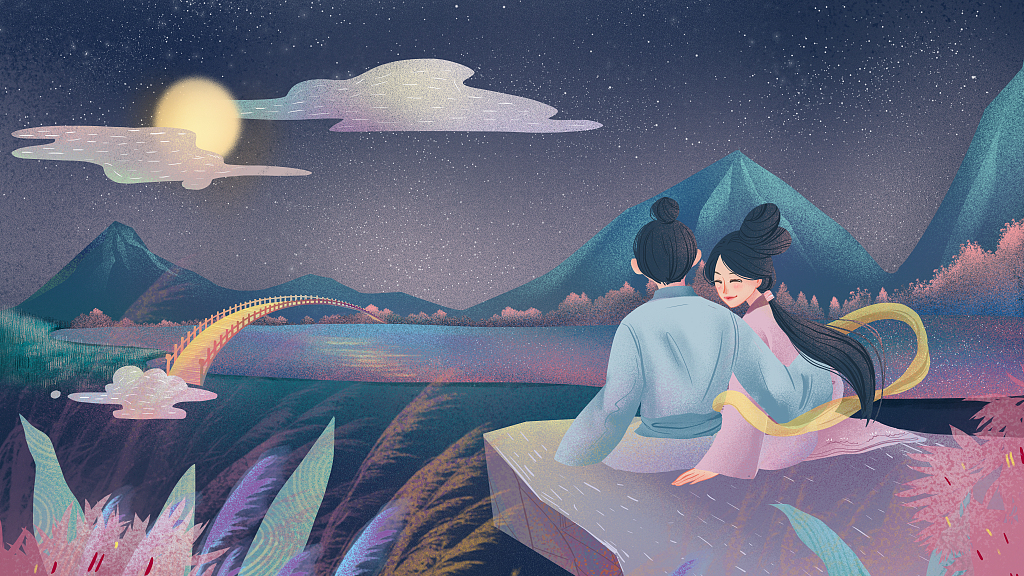
The Qi Xi Festival, also known as China's Valentine's Day, dates back to some 2,000 years ago to a love story between Niu Lang and Zhi Nyu. Today the festival is celebrated on the seventh day of the seventh month in the lunar calendar.
The story of Niu Lang and Zhi Nyu
The matchmaker, or fairy godmother in this story, is a dying cow who once was a god of its species but was sent to Earth for its mistakes. Niu Lang was a kind young man who found and took care of him. As humble as he was, he lived with his greedy cousins who one day kicked him out. They only allowed him to choose one cow with him. He of course chose the god disguised as a cow to keep him company. This relationship would allow him to meet real fairies, one of them became his wife, the heroin of our story, Zhi Nyu. "Zhi" means weaving, and "nyu", lady. She had weaving skills that no one else could compare with. They loved each other dearly and had a beautiful life on earth, until the godly empress tracked them down and was determined to bring her back to heaven.
Que Qiao, the magpie bridge, was composed of thousands of magpies summoned by the magpie god deeply touched by their story. Every year, on the day of Qi Xi, the couple get to reunite with the help of magpies. Eventually, Niu Lang was enlisted as a god along with the sons of the empress.
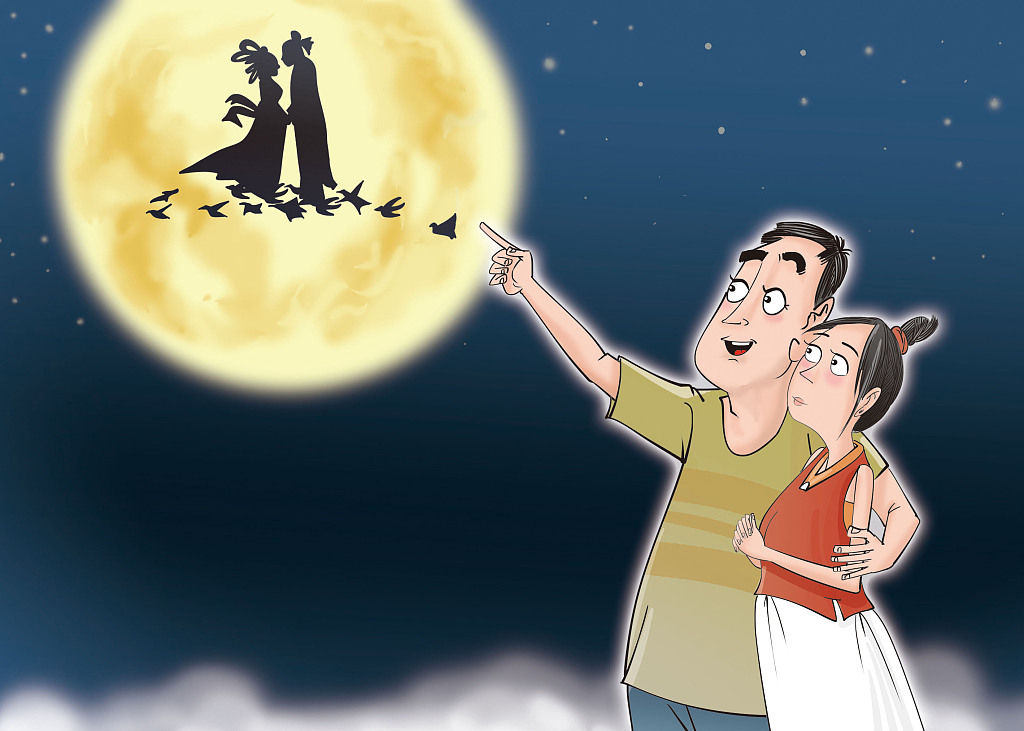
A cartoon picture of a couple admiring the story of Niu Lang and Zhi Nyu. /VCG Photo
For Chinese people, there's no better festival, especially one with such a story, that symbolizes our admiration for the great love. Today the day is celebrated with activities related to the bridge, the craft of weaving and preparing a traditional dessert to worship the couple.
Culture and romance
The Tianhe Qi Qiao Culture Gala for Qi Xi festival is a national intangible cultural heritage, a representative of Tianhe District, Guangzhou City, capital city of southern China's Guangdong Province. This year, the gala lasts until August 8, a day after the official festival.
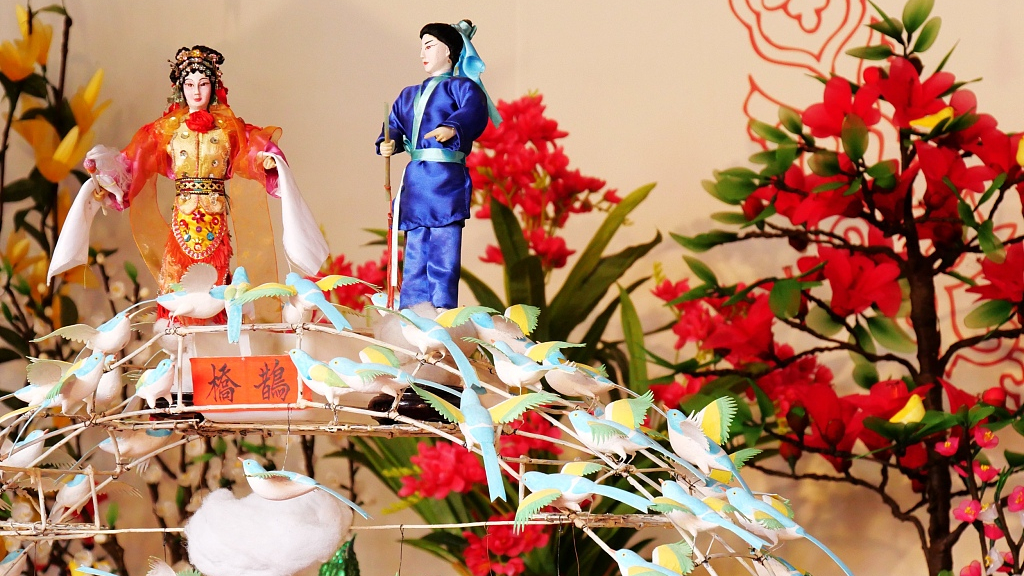
Handmade craft of Niu Lang, Zhi Nyu, and the magpie bridge. /VCG Photo
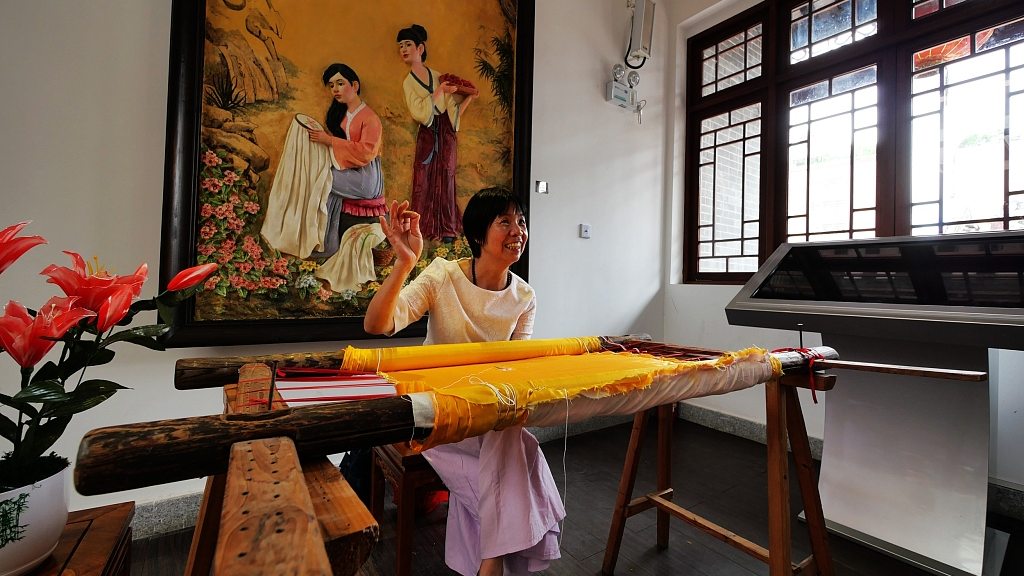
A lady is showcasing the art of weaving at the gala. /VCG Photo
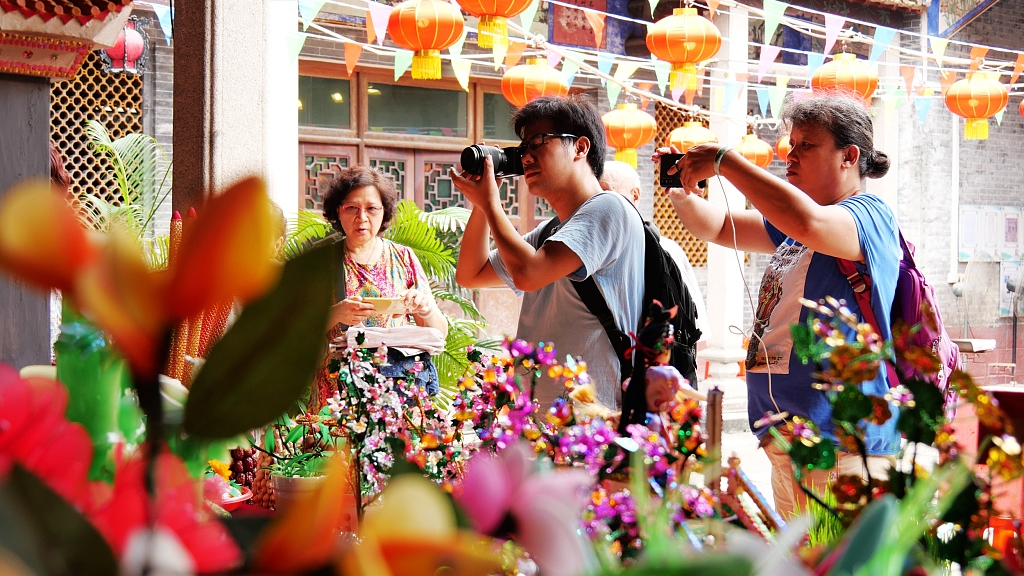
Visitors take pictures inside the gala. /VCG Photo
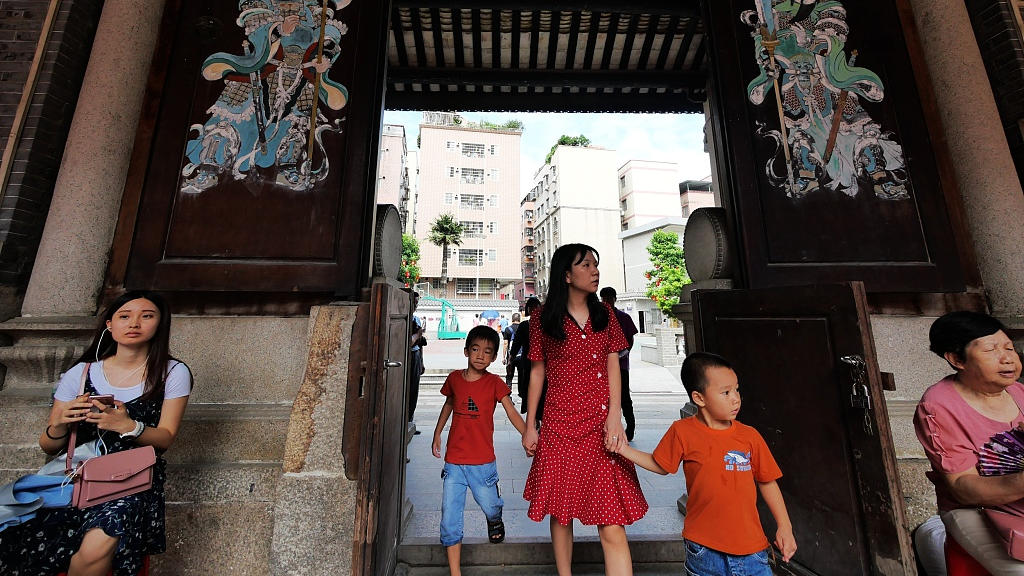
The culture of the festival attracts tourists of all age groups. /VCG Photo
Numerous parks across the country decorate their bridges to mimic the magpie bridge as a tourist attraction. For example, in Beijing, the renowned Summer Palace will launch a light show on the night of August 7, using its Seventeen-Arch Bridge to present a festival touch for visitors.
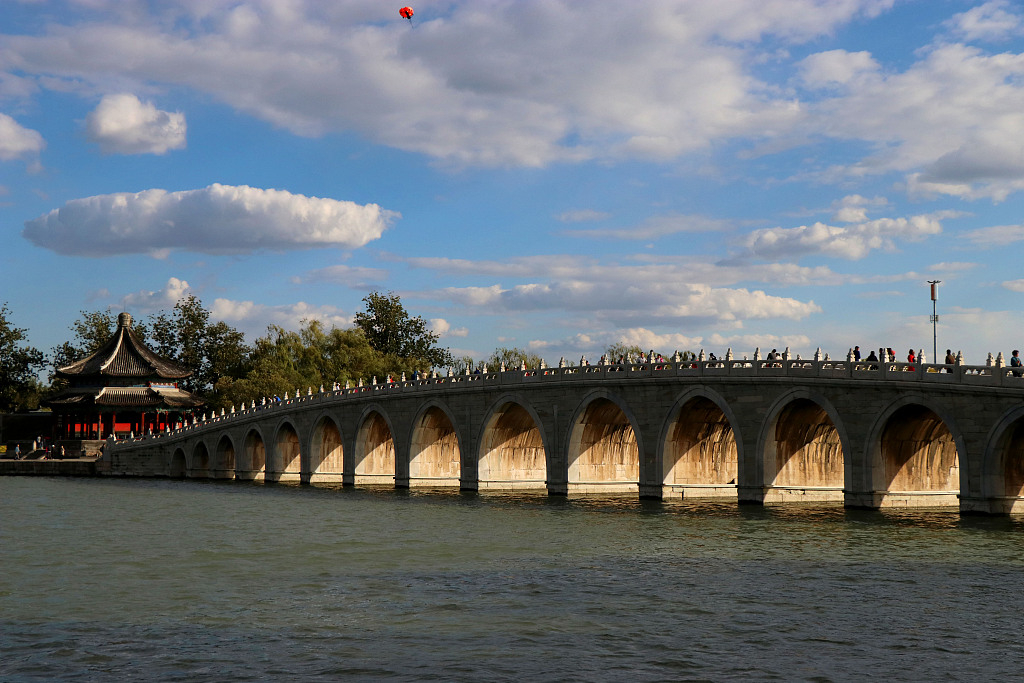
The Seventeen-Arch Bridge in Summer Palace, Beijing, China. /VCG Photo
Qiao guo is a traditonal dessert people in Yangtze River Delta prepare to celebrate the Qi Xi Festival, but it's also become popular across the country. In some suburban areas of Shanghai, custom has it that married women visit their parents on the day of Qi Xi, and bring back some qiao guo to her husband from her parents.
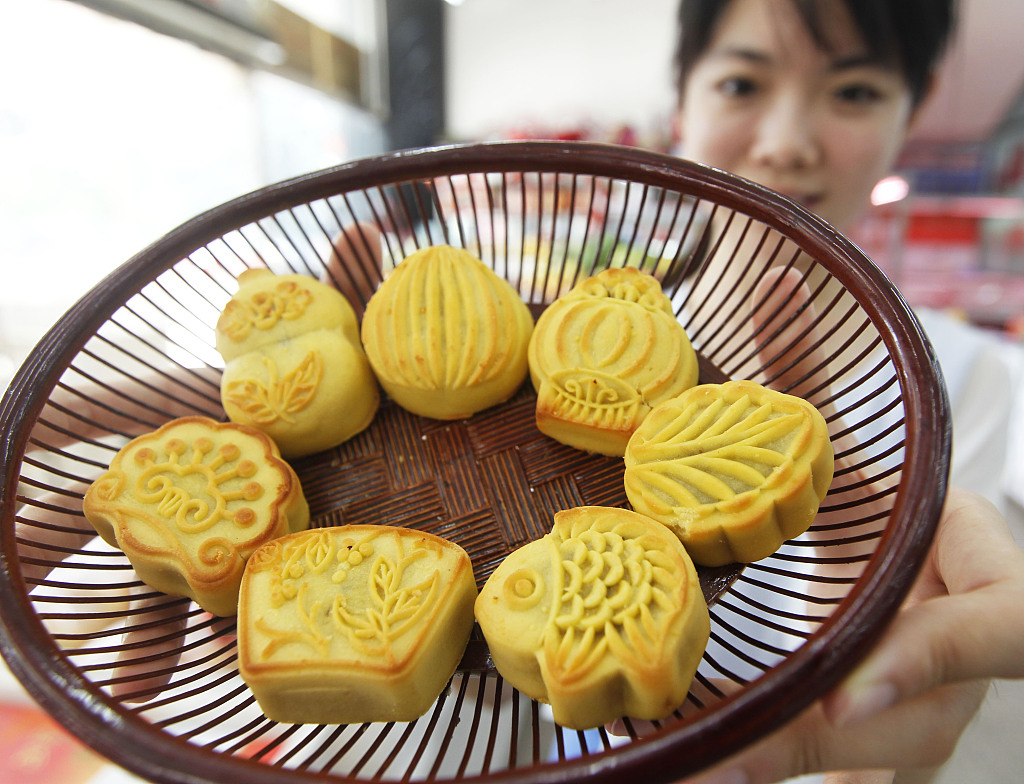
A lady presents Qiao Guo that come in different shapes. /VCG Photo
Leisure in summer
Every year, Qi Xi falls in the midst of summer in China. Seeking romance and coolness are not mutually exclusive. Tourist destinations such as Xiamen, Qingdao, and Lijiang, as well as cities like Harbin have everything tourists and their loved ones are looking for.
(Cover image from VCG)

Copyright © 2018 CGTN. Beijing ICP prepared NO.16065310-3
Copyright © 2018 CGTN. Beijing ICP prepared NO.16065310-3